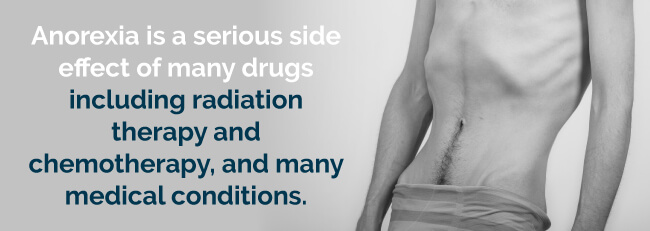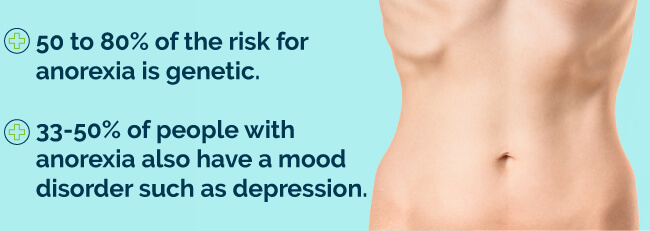There are various conventional and alternative treatments for anorexia. In this article, we look at what anorexia is, how physicians treat it and how medical marijuana for anorexia might help alleviate you or your loved one’s symptoms.
Medical marijuana can stimulate your metabolism and help to increase your appetite. You’ve no doubt heard of cannabis users having “the munchies.” They often have a raging hunger after they’ve taken a hit. This craving for food encourages them to eat to provide the body with vital calories, nutrients and energy. It can also help you eat if you have anorexia.
Marijuana can help you throughout your various stages of anorexia recovery. For example, if you were in a critical condition and couldn’t eat, ingesting pot could be a better and gentler alternative to a feeding tube. During the later stages of your recovery, after your weight has stabilized, you can use pot to help you relax and to combat depression and anxiety.
Find A Doctor Find A Dispensary
According to scientific and anecdotal evidence, using medical marijuana is a safe, effective way to increase the appetite. A Columbia University study found that THC and cannabis caused an increase in caloric intake and weight in HIV-positive patients. And the National Cancer Institute is in the process of evaluating the effects of THC for treatment-related and cancer-related anorexia. Many marijuana states include anorexia on their list of qualifying conditions. Additionally, marijuana side effects are typically mild and are classified as “low risk,” with euphoric mood changes among the most frequent side effects. Increased appetite is considered to be one of the few marijuana side effects, but it can be extremely beneficial to patients suffering from anorexia.
Physical brain changes accompany anorexia. Some of these happen in your endocannabinoid system or ECS. Your ECS controls feelings of pleasure, mood and appetite. When you take medical marijuana, THC engages your ECS and takes the place of some of the compounds produced by our own bodies known as endocannabinoids.
As reported in 2012 in Behavioral Pharmacology, researchers suggested that the endocannabinoid system malfunctions in people with anorexia. Researchers aren’t clear whether these changes are already present in anorexia patients, or if they happen because of anorexia. Either way, there are some positive signs that cannabis can help treat the condition.
When you’re looking for the best strain of medical pot to treat your anorexia symptoms, it will take a little bit of experimentation before finding the right strain or strains. Medical weed is useful for treating the following:
To start trying out medical marijuana, it’s crucial that you get your medical marijuana card. You can take this to visit dispensaries and ask the budtenders the questions you need to have answered. You’ll also need to take your medical marijuana recommendation with you on these visits.
It’s perfectly natural to be a little worried before visiting a dispensary. The more you do it, however, the faster it’ll become like second nature to you.
It’s always a good idea to talk to your medical marijuana doctor or a budtender about your options regarding cannabis for anorexia. In the meantime, we’ve put together this helpful guide to the different strain categories and their properties.
Indica strains have a whole-body sedating effect. They’re useful for treating conditions such as:
Sativa strains are great for upping your energy levels. They’re often used to treat:
Hybrid strains have both Indica and sativa qualities.

There are no rights and wrongs when it comes to experimenting with different medical pot strains. In fact, many people choose to medicate with a combined strain approach. Cannabis no longer carries the stigma it once had. People all around the globe are waking up to the medicinal benefits of pot. Sativas are often best used during the day as they have energizing properties. Indicas are relaxing and better suited to evening use.
Cannabis is useful for treating many symptoms of anorexia. Let’s see what strains work well for each symptom.
The most prominent symptom of anorexia is a marked lack of appetite. The following strains will help you get your appetite back on track:
Mood disorders are common in people with anorexia. If you don’t like the idea of the side effects associated with conventional antidepressants, these four strains are worth a try:
Perhaps the most well-known way of consuming pot is to smoke it. Nowadays, however, there are many ways of taking medical weed. Smoking doesn’t have to be one of them, although that’s still a fast and effective option. Keep in mind that you can experiment with any of the various methods of taking cannabis until you find the one that suits you.
As with anything new, it’s best to begin by taking a low dose to see how the strain suits you. From there, you can work your way up until you find the best dose for you. Be sure to take your time as you experiment. Pot effects can sometimes take time to take hold.
The best way to move forward is to search for a medical marijuana doctor or dispensary today to find out more about cannabis and anorexia. Your medical pot doctor or the dispensary staff can assess your condition to help you select the most suitable type of medicinal pot. Take control of your anorexia today.
Find A Doctor Find A Dispensary
Anorexia nervosa, or anorexia, is a psychological and possibly life-threatening eating disorder.
Signs that you might have anorexia include having:
Anorexia is an eating disorder that the sufferer usually has no control over. If you have anorexia, you lose more weight than is healthy for your height and age. It’s especially common for people diagnosed with anorexia to try to lose weight through over-exercising or by other means.
The condition often starts when you’re a pre-teen, teen or young adult. Anorexia affects females most commonly, but it can also affect males.
Risk factors for developing the condition include:
When you’re in the midst of an anorexic disorder, you may often feel fatigued, exhausted, dizzy, dehydrated and cold. If you’re a woman, your menstrual cycles may become irregular or stop altogether. Your hair may begin thinning, and you might feel irritable, anxious or sad.

Anorexia, or an abnormal decrease in the sensation of appetite, is a serious side effect of many drugs including radiation therapy and chemotherapy, and many medical conditions, such as acute viral hepatitis, HIV/AIDS, cancer, congestive heart failure, Chron’s disease, depression and more. (Click here to learn about the eating disorder Anorexia Nervosa.) Anorexia can lead to or contribute to other serious medical conditions such as wasting syndrome or cachexia.
Many historical figures such as Mary, Queen of Scots are thought to have suffered from anorexia. The first descriptions of the illness date back to Hellenistic times.
In 1689, the first medical descriptions of anorexia nervosa were mentioned by the English doctor Richard Morton. However, the condition didn’t become widely accepted by medical professionals in the late 19th century. In 1978, the psychoanalyst Hilde Bruch published The Golden Cage: The Enigma of Anorexia Nervosa. The book brought a wider awareness of the illness among the general public.
When you have anorexia, you usually:
You might severely limit the amount of food you eat, or perhaps you might eat and then force yourself to vomit. Other behavioral signs of anorexia include:
Physical symptoms of the illness include:
The National Association of Anorexia Nervosa and Associated Disorders, Inc. (ANAD) reports the following facts relating to anorexia:

Anorexia diagnosis can be a challenge. The condition often involves denial, secrecy and shame. Because of these factors, the illness may go undiagnosed for a lengthy period.
To diagnose you with this eating disorder, your doctor will examine you and take a complete medical history to make an evaluation. There are no lab tests to diagnose the condition conclusively. But your doctor may run tests such as blood tests to rule out other conditions and to determine whether your weight loss is adversely affecting your organs.
If no underlying physical illness is present, you may receive a referral to a psychologist or a psychiatrist who can evaluate you further.
You may need emergency care if your case is extreme and involves any of the following:
Even if you’re not in an emergency situation, potential treatments will be challenging due to common feelings about the illness. Your physician will recommend a comprehensive treatment plan to meet your needs and get you well. Your medical team may employ the following treatment methods:
Also, if medical marijuana is approved as a qualifying condition for the treatment of anorexia, you might consider using cannabis to help with your anorexic symptoms. To date, California, Maryland, New Mexico, and Washington have anorexia on their approved lists for medical cannabis.
Your medical team can best diagnose and treat anorexia when detected early.
Let’s take a look at how medical cannabis for anorexia might help you.


Please allow us to access your location to find local dispensaries.
VIEW ALL DISPENSARIES ➔